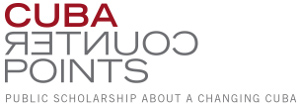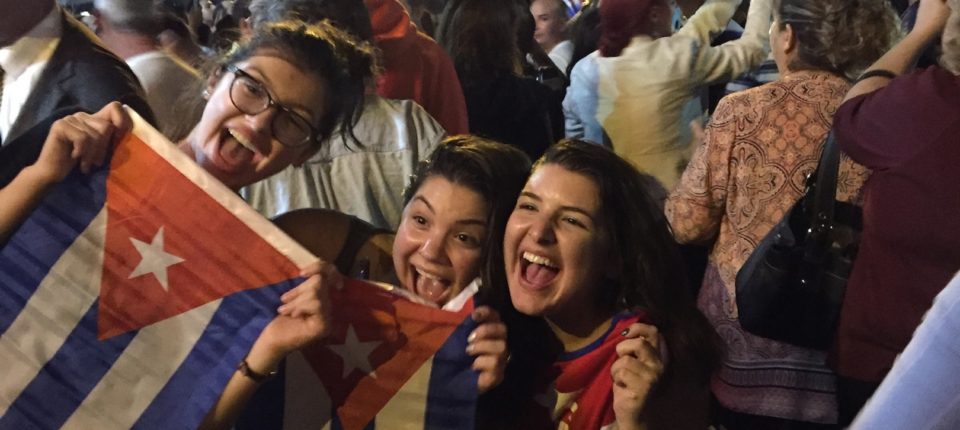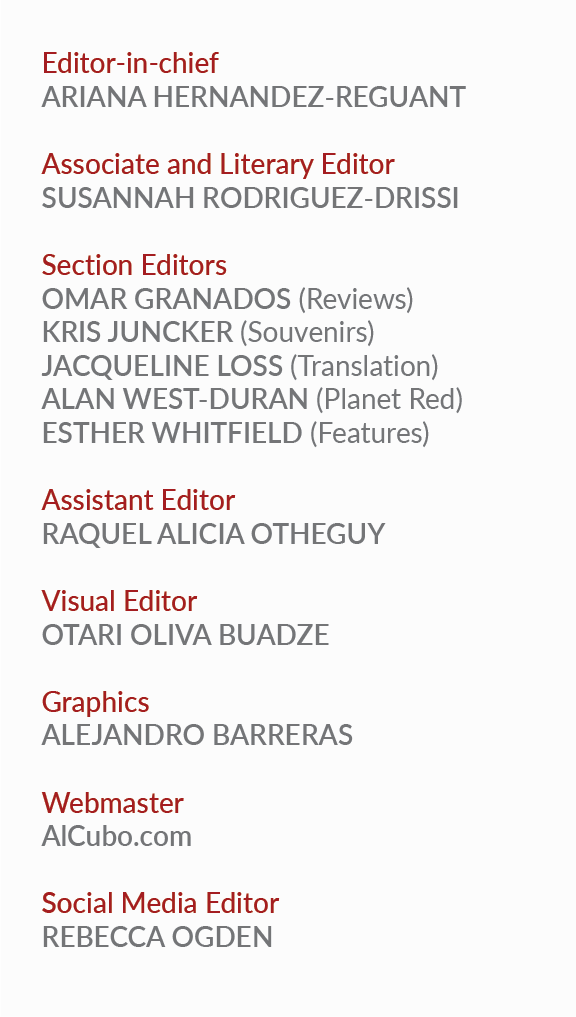We had to park on a side street and walk because Calle Ocho was so congested. Our goal: Versailles Restaurant, which we knew would be the epicenter – the glowing ember that was reverberating out through all of these red brake lights, lined up, like an impressionist painting. One car after another, the people inside longing for community, for their fellow Cubans to celebrate with.
The soundtrack: Wooden and metal spoons against pots and pans of every color. Pots and pans that had been lifted from stove tops and pantries on the way out the door, for music. Because of course there had to be music. Timbales, claves, drums made out of buckets. Horns accenting chants: Viva Cuba Libre! An old man with a liberty bell, clanging like his life depended on it – because it had (for so many years). “Libertad! Libertad!”
The most common brushstroke: Floating flags swaying: American, Cuban, Venezuelan (in camaraderie). A smattering of orange balloons, I can only imagine were left over from a party — orange-copper, color of flame, starred – some of them escaping, scraping past hands, up toward the sky.
And then, every once in a while, like small ditches, there were pockets of sadness – little black holes where the censure and repression and death still crept, so used to hiding out they didn’t know where to go now. Tired kids holding their parent’s dreams, not quite understanding, but feeling-through what all of this might mean. Smiles, laughter, tears; rage, hope, and despair.
This is 8th street in Miami the night Fidel died.
As an American Born Cuban (ABC), this is a mythic moment – a moment the exile community that raised me has longed for, for nearly six decades. In my mind now, however, a kind of emptiness marks the occasion – a basket for the catching of this news, this celebration: Fidel Castro’s death. I circle the crowd like a dreidel. My fiancé turns to me and asks: “Are you ok? You’re not crying?” He knows I’m usually a fountain – tree sap, I confess. But not now. The first phase of grief, perhaps – shock? Grief not for the death of Fidel, but for all those that had lost an island – had been forced to flee by sea or land – through the Florida Straits and the Amazon. Some of them never to look back, others like Orpheus, forever reaching backward, forever losing. For those that had died at sea, trying to get out of the pressure cooker. Out no matter what, floating like those copper balloons, some swallowed by sharks or by the water itself, out of Cachita’s hands.
I spent my childhood watching Cubans wash-up onto South Florida’s shores. 500 a day during the worst of times, that “Special Period,” marked by hunger – the end of Soviet subsidies to Cuba, a final chokehold on the lizard-looking landmass after the fall of The Berlin Wall. Risking it all, gasping for air on inner tubes the size of pool floats, people leaped toward freedom. Boats made of cars, rubber, wood, anything that would float, take them out of Havana, Cienfuegos, Santiago, Camagüey.
All of this swims in my head as I drift, out on the street, no pots to hold or play – only a camera. It’s too soon to really clarify all this, too soon to tell what the merengue we are making will turn out to taste like.
My grandmother said it best when my mom told her what had happened. “Me siento extraña,” she said. “I feel strange.” For an entire generation on the island there is no reference point for change. For an entire generation outside the island, there is no reference point for our lives without Fidel, that real and imaginary figure, reshaped in Miami – Enemy #1. No wonder we spin, and spin. The hope is that once we stop spinning, we’ll still be able to find our North Star.


